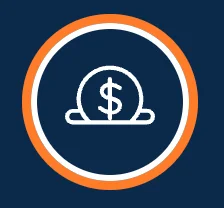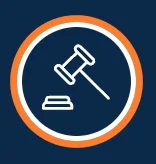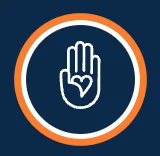Jordan Law Center’s nursing home abuse lawyers in Greenville have recovered millions of dollars for our clients. If you or a loved one in a nursing home has been a victim, call 864-808-1810 or message us to talk about your case.
Attorneys for Nursing Home Abuse in Greenville, SC
At Jordan Law Center, we are proud to represent the victims of nursing home abuse. We can represent you or your loved one.
Attorney William Ashley Jordan III is an experienced lawyer for nursing home abuse victims in Greenville, SC. He is an accomplished young attorney with extensive courtroom experience, and his results speak for themselves.
If you have been mistreated in a care facility, we have the legal skills and compassion to help you. Call 864-808-1810 or message us today to begin.
Legal Representation for Nursing Home Abuse Victims
Nursing home abuse occurs when someone in a care facility is harmed intentionally or negligently.
Nursing home abuse may be:
- Physical
- Bedsores
- Mental
- Emotional
- Sexual
- Financial
- Neglect
- Dehydration
- Falls
- Malnutrition
- Wrongful Death
Nursing home abuse is never the fault of the victim. It’s never okay. People live in nursing homes because they need and want care. That’s what they deserve. Being free from abuse in a nursing home is your legal right.
If you’re the victim of abuse, you may deserve financial compensation. In addition, bringing a claim can result in accountability and changes that prevent harm to others.
To talk about your situation and see if a claim is right for you, please contact us.
Consequences of Nursing Home Abuse
Victims of nursing home abuse suffer a range of negative outcomes. They may suffer:
- Physically: Including increased medical bills because of the abuse
- Diminished mental health: Anxiety, depression, post-traumatic stress, and social withdrawal
- Premature mortality: Abuse can lead to premature death
- Cognitive decline: Trauma is associated with decreased cognitive performance, communication challenges, and increased dependence
- Financial harm: Whether because of theft or expenses related to victimization
- Emotional anguish: Being an abuse victim is emotionally traumatizing, especially in an environment that is meant for the resident’s safety
Victims may claim compensation for economic damages and personal suffering. You may receive compensation for increased medical bills, personal care expenses, and property damage. Non-economic damages may include physical pain, mental suffering, and emotional anguish. If you have been victimized by financial abuse, you may seek repayment and damages.
We’re committed to making your claim complete. Being an abuse victim harms you economically and personally. The compensation you receive should reflect your losses. To see what your case may be worth, and what’s involved in bringing a claim, we invite you for a personalized case review.
Examples of Nursing Home Abuse
Examples of nursing home abuse include:
- Assault and battery, hitting, kicking, slapping, or pushing
- Inadequate fall protection, lack of medical devices, railings, falls during patient transfers
- Uneven surfaces, broken flooring, bunched carpet, and other trip and fall hazards
- Lack of medical care, failing to fill prescriptions, or follow a care plan
- Sexual assault and abuse
- Poor basic hygiene, inadequate food or water
- Sanitation hazards in the facility, spread of disease
- Electrical problems that result in fire
- Emotional isolation, allowing self-neglect
- Threats, belittling, taunting, insulting, and other emotional abuse
- Yelling, making fun of residents
- Stealing funds, overcharging, mismanagement of assets
Nursing home abuse is often subtle. Caregivers may threaten victims and witnesses. They may carefully cover up their actions. Multiple types of abuse may occur simultaneously. Our lawyers represent victims, assisting them in investigating, building, and pursuing their claims.
Consultations Available Today With a Nursing Home Abuse Lawyer
We believe everyone concerned about nursing home abuse should be able to talk with a lawyer. We offer:
- Free consultations
- No obligation
- Consultations in our office, in a care facility, the hospital, or at home
- Virtual meetings available
If you or a loved one is the victim of abuse, we invite you to consult with our legal team. Even if you just have questions or are uncomfortable with something you observed or experienced in a nursing home, please contact us for a free consultation. We’re happy to answer your questions and discuss your case.
Why Choose Jordan Law Center?
Here are some reasons people choose Jordan Law Center when they need a Greenville nursing home abuse lawyer:
- A track record of success. We’ve secured millions for our clients.
- Indisputable record of trial verdicts. We go to trial and win. We won’t pressure you to settle your case.
- Extensive courtroom experience. Attorney William Ashley Jordan III has handled complex multi-district litigation and class-action claims. He’s ready to handle your case.
- Small firm attention. Our small size means you know us by name, and we give your case the attention it deserves.
- Experience handling nursing home abuse claims. We understand the laws and the legal procedures that are important to nursing home abuse victims.
- Claims are handled in Greenville and the surrounding areas. We’re here whenever and wherever you need us.
Attorney William Ashley Jordan III is committed to being the legal voice for nursing home abuse victims. To learn more and start your case today, contact us.
Experienced representation, compassionate service
Here are some of the ways Jordan Law Center can assist you when you need a Greenville nursing home abuse lawyer:
- Pursuing compensation for the abuse victim
- Demanding answers from care providers and facility representatives
- Gathering evidence and building your case
- Reporting the abuse to authorities
- Taking steps to seek accountability and prevent further abuse
- Seeking justice through legal actions and in court
- Representing your interests including in settlement negotiations
- Answering questions and guiding you through the process
Nursing home abuse victims are often vulnerable. They may not be able to raise the alarm when abuse occurs. They may worry about a long and stressful legal process.
Our law firm understands the challenges that victims face. We won’t believe these things should stop nursing home abuse victims from receiving justice. That’s why we’re here to advocate for victims with aggressive and compassionate legal services.
Nursing Home Abuse Statistics
- 64% of nursing home staff report knowledge of nursing home abuse in their facilities in the past year.
- Psychological abuse is the most common type of abuse, with 33% of residents and 32% of caregivers saying psychological abuse has occurred.
- 14% of residents and their loved ones self-report physical abuse in a care facility.
- Financial abuse is prevalent, with 13% of residents and their families saying it has happened to them.
- 11% of residents and their next friends report nursing home neglect.
Source: World Health Organization, Abuse of older people
How prevalent is physical abuse in a nursing home?
Only 2.6% of residents themselves report physical abuse. However, when family members and friends are included in reporting, the number jumps to 13.8%. This may be an indication that nursing home residents are unable or unwilling to report physical abuse.
What is the most common abuse in nursing homes?
Emotional abuse is the most common abuse in nursing homes. According to the World Health Organization, more than 33% of nursing home residents are subjected to psychological abuse.
To learn more about how we can help you, contact us at 864-808-1810 to schedule your free initial consultation.
Taking New Cases – Get Legal Help Now
Our law firm is taking new cases, and we can start today. See how a lawyer can help you following nursing home abuse, and what you may receive by bringing a claim.
We believe nursing home abuse victims deserve professional legal representation. Talk to a Greenville nursing home abuse lawyer at Jordan Law Center today. To learn more about the law and your situation, call 864-808-1810 or message us.






